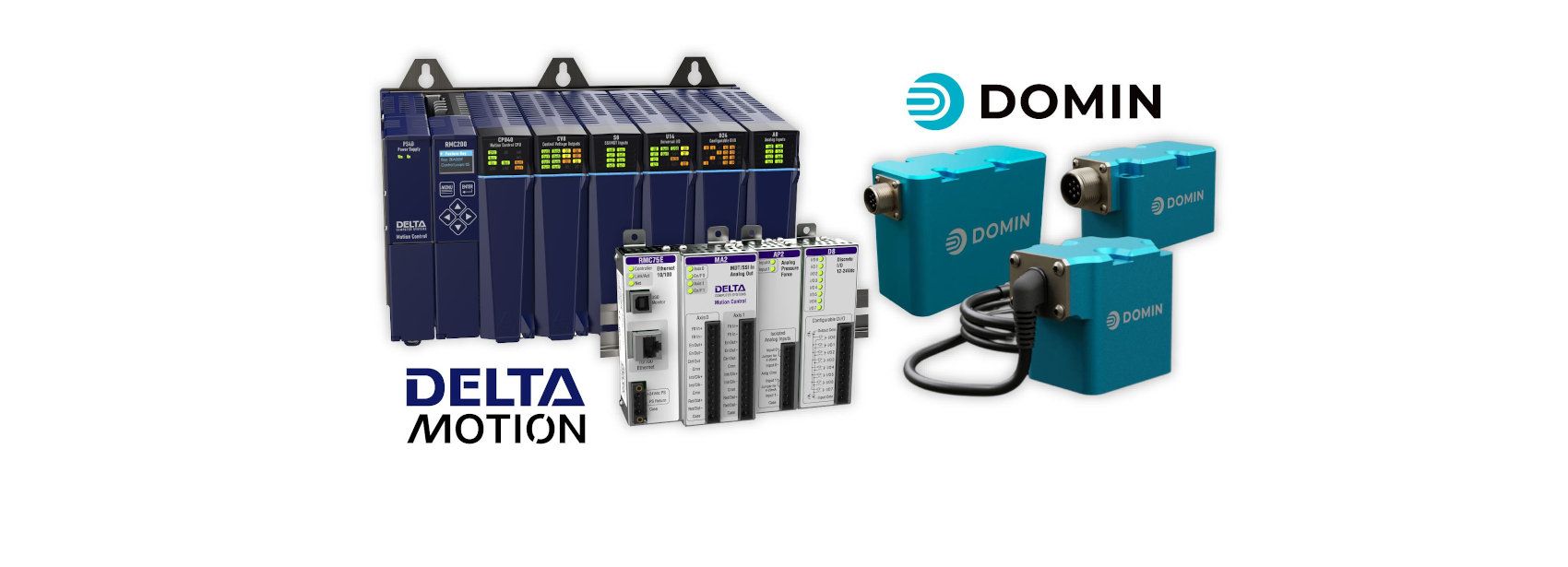
Delta Motion is a well-regarded manufacturer specialising in high-performance hydraulic motion control solutions for industrial automation. Their dedication goes beyond simply providing products; they also offer comprehensive hands-on training programmes and customer support. Notably, Delta Motion conducts thorough testing on a wide range of servo and proportional valves, including those made by Domin's competitors. Their testing approach prioritises real-world application performance, unlike standard manufacturer assessments that mainly focus on robustness and reliability.
Delta Motion has earned a respected reputation by being transparent in publishing valve test results and using them to recommend valves tailored to specific customer needs. For Domin, having their valves tested by Delta Motion provides access to additional credible third-party validation from a trusted industry source.
Delta Motion were given one each of Domin’s S4 Pro, S6 Pro, and S10 Pro valves for evaluation and tasked with evaluating them, aiming to assess their performance against published specifications to the fullest extent possible.
The S6 Pro (size 06, ±10V input) and S10 Pro (size 10, ±10V input) underwent testing on systems featuring a 2-inch bore cylinder with a 24-inch stroke, while the S4 Pro (size 01 ±10V input) was evaluated on a system with a 0.875-inch bore cylinder and a 6-inch stroke. Both setups operated at a supply pressure of 1500 psi provided by a pump and accumulator, with a position sensor resolution of 1µm and a motion controller update rate of 1 ms.
The testing methodology evaluated:
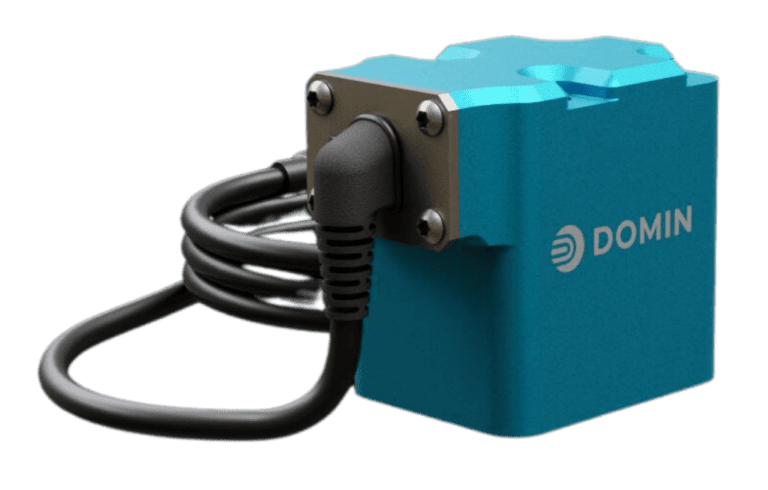
The step response was tested by feeding the valve a step input and monitoring the spool position. Unfiltered velocity is plotted. As shown in Figure 2, the valve reached 100% within 5ms. Accounting for delays due to the 1 ms update rate, the actual step response is likely around 3ms. Figure 3 shows the movement from 100% to 0% spool position, which exhibits some overshoot.

The Domin valve was able to perform force control well. The noise in the plots is due to the system, not the valve, and did not allow the most precise analysis. From the tuning experience and control experience, the valve felt very capable of good force control.

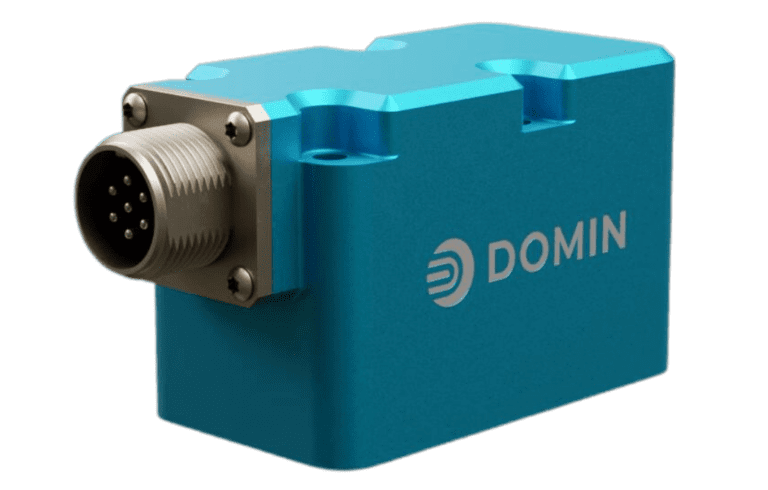
The frequency response was tested by outputting an open loop voltage sine wave with a varying frequency from 1 Hz to 100 Hz over 5 seconds. The spool position was monitored, and data collected every 0.250 milliseconds.

The valve was placed on a system with a very low natural frequency that requires Double Differential Gain and Jerk Feed Forward. The valve performed very well.
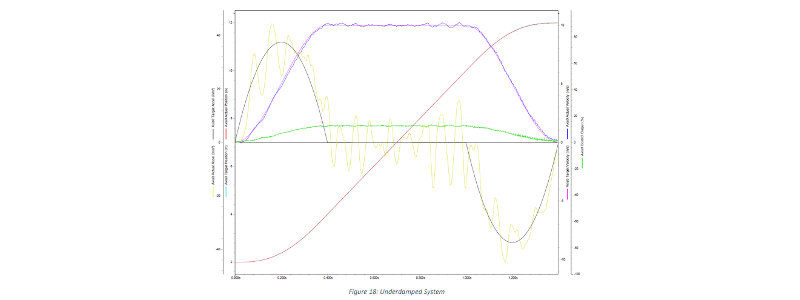
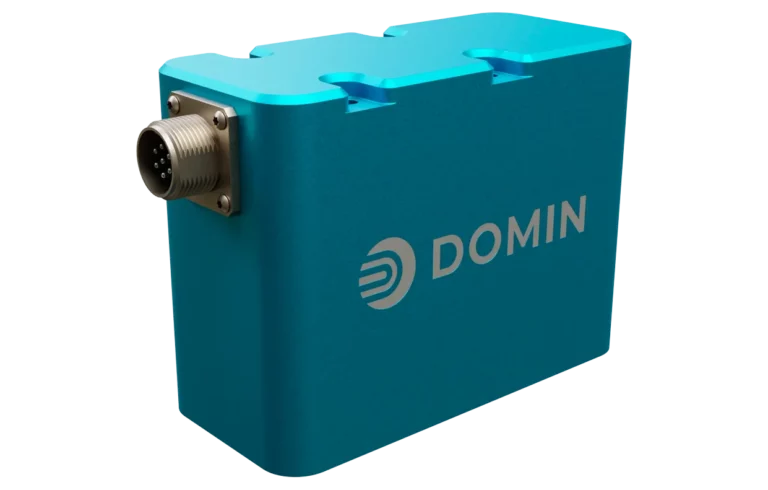
Closed loop position control was tested by a technician tuning the system as good as possible. As seen in fig 8, the valve held position with minimal oscillation of ±0.00004in.
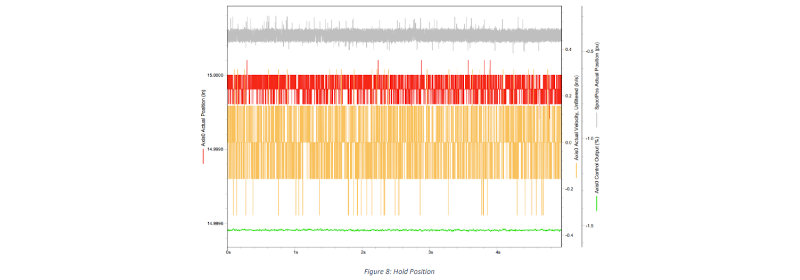
Different pulses were applied to the valve to test its stability . The valve was responsive and remained stable thoughout the tests. The figures below illustrate the resulting plot from different pulses

The valves demonstrated excellent motion control capabilities for position, velocity and force regulation. The results validate Domin’s claims about servo valve performance and showcase advanced technical abilities.
Across all three servo valves tested – the S6 Pro, S4 Pro, and S10 Pro – Delta Motion’s results showed:
In summary, the testing performed by Delta Motion proves Domin’s expertise across their servo valve lineup. The S4 Pro, S6 Pro and S10 Pro all achieved exceptional performance in key areas of linearity, dynamics, stability, position accuracy, velocity tracking and force control. These results validate Domin’s capabilities and demonstrate their leadership in driving new standards for high-performance servo valves. The testing results from Delta Motion cements Domin’s reputation as an innovative player advancing servo valve technology.
Delta Motion is a US registered trademark of Delta Computer Systems, Inc. dba Delta Motion.
Vat Reg Number: 846644204 Company Registration Number: 5230249
© Copyright 2025 Zeus Hydratech | All Rights Reserved